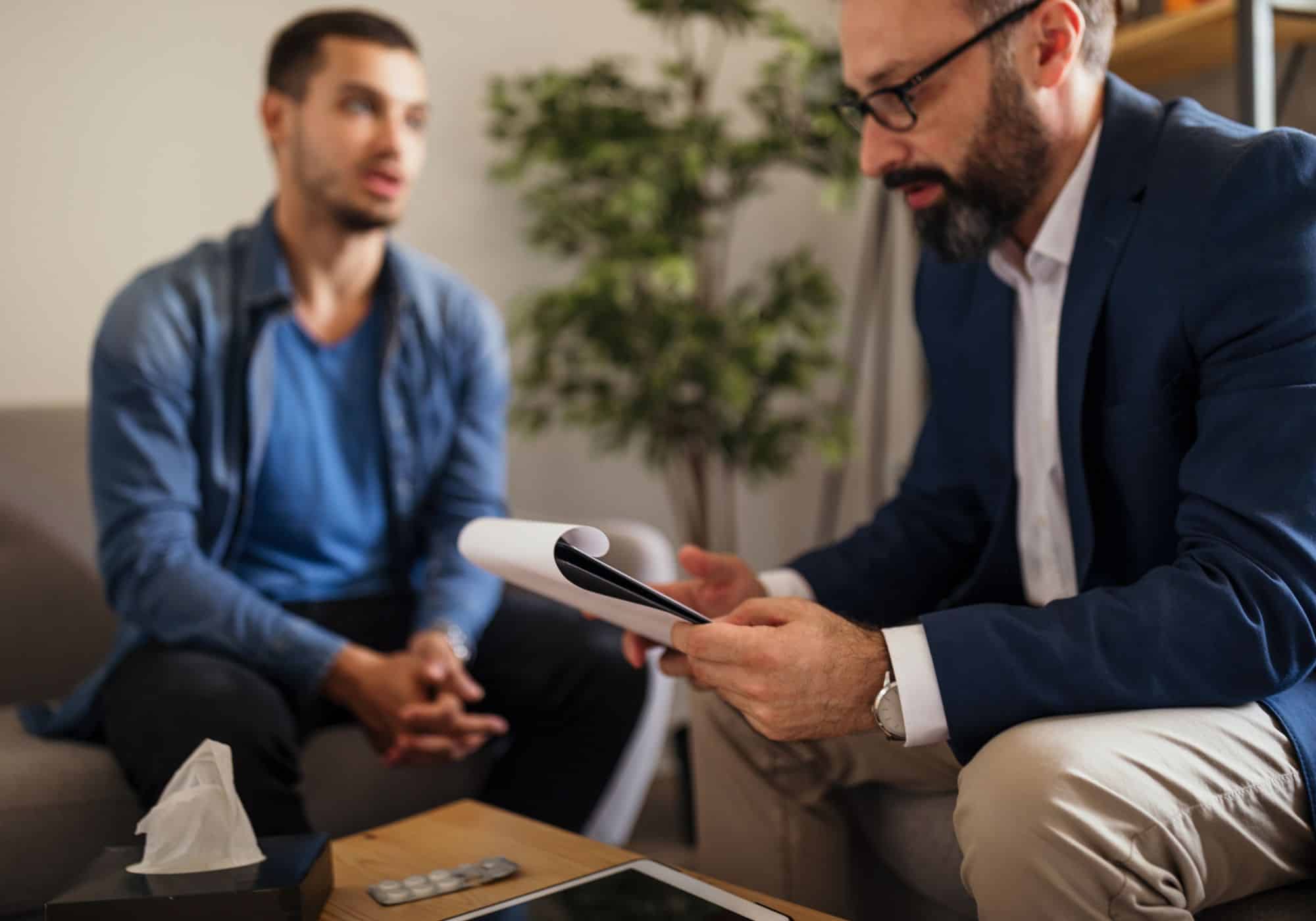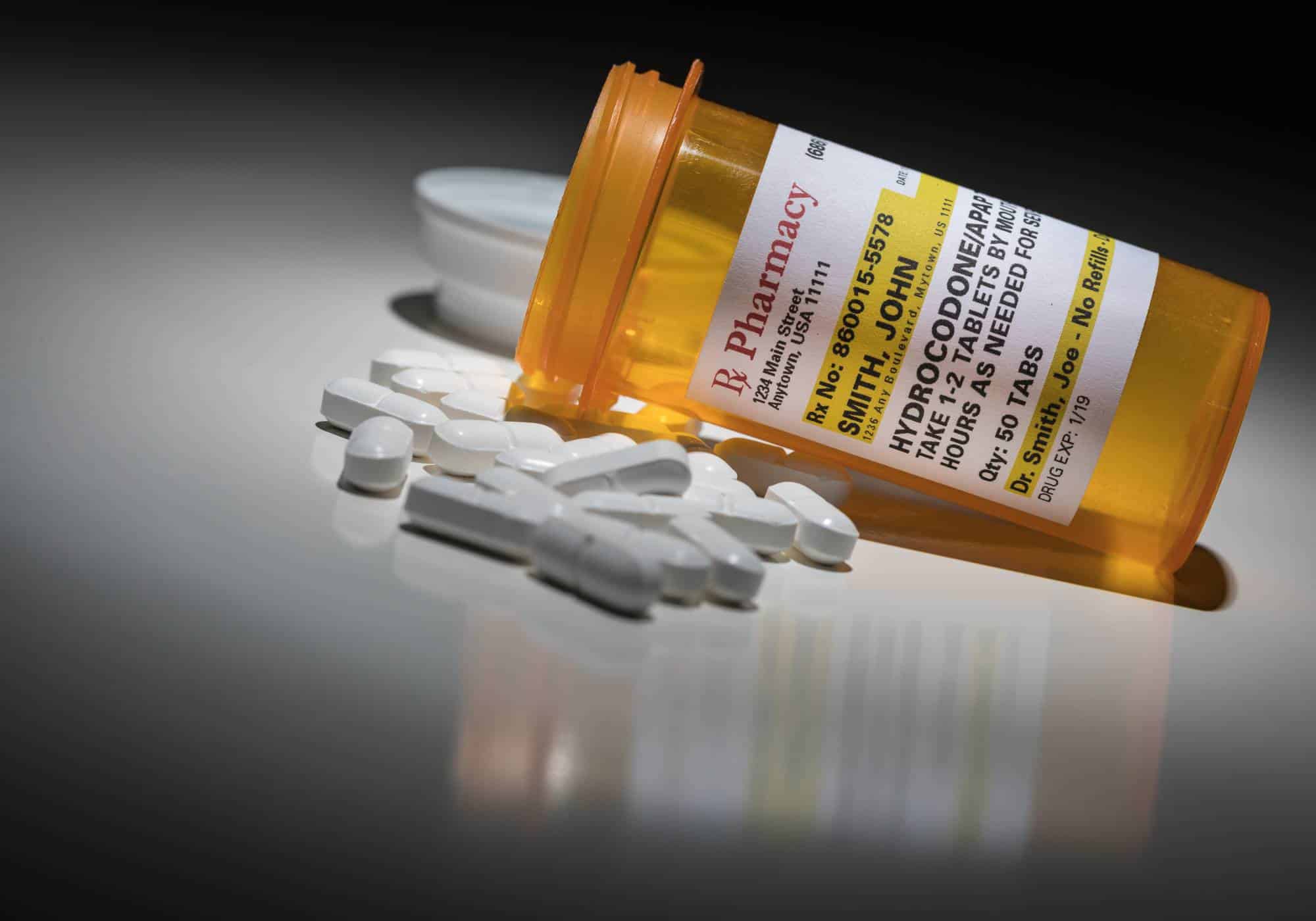Struggling with prolonged insomnia can significantly impact one’s life. For some, the prescription drug Ambien brings much-needed relief without adverse effects. However, others find themselves grappling with an addiction to this medication, making professional treatment essential for recovery. Hope Harbor Wellness offers an effective outpatient program specifically designed to assist those battling Ambien addiction. Our supportive approach aids individuals in breaking free from their dependence on Ambien, guiding them towards a sober and healthier life. Call us today to begin your Ambien addiction treatment in Atlanta, GA.
What is Ambien?
Ambien, whose generic name is zolpidem tartrate, is commonly prescribed as a sedative to treat insomnia, which includes challenges in falling or staying asleep. It’s important to note that even when used as prescribed, Ambien has the potential to become habit-forming if taken over extended periods.
Apart from Ambien, zolpidem is also available in other formulations, such as:
- Edluar: A sublingual tablet that dissolves under the tongue.
- Intermezzo: Another sublingual tablet, but available in varying doses.
- ZolpiMist: An oral spray version of zolpidem.
Classified as a short-acting, non-benzodiazepine hypnotic, Ambien effectively aids in initiating and maintaining sleep. This makes it a valuable tool for those with serious sleep disturbances. However, it’s not without its risks. When misused or abused, Ambien can lead to adverse side effects. It’s crucial for users to understand these risks and use the medication strictly under a doctor’s guidance to mitigate potential issues.
Is Ambien Addictive?
Yes, Ambien, a medication belonging to the Z-drug class, can be addictive. Initially, Z-drugs like Ambien were marketed as safer alternatives to benzodiazepines, with a supposedly lower potential for tolerance, abuse, and dependency. Ambien is particularly appealing as a sleep aid due to its quick onset of action (usually within 30 minutes) and its short half-life, which reduces grogginess the next day.
However, recent research has shown that Z-drugs, including Ambien, have been involved in numerous cases of abuse, dependence, and even fatalities over the past years. The World Health Organization (WHO) now recognizes that zolpidem, the active ingredient in Ambien, has a risk profile for abuse and addiction similar to that of benzodiazepines. Consequently, the U.S. Drug Enforcement Administration (DEA) classifies Ambien as a Schedule IV controlled substance, acknowledging its potential for abuse.
Physical dependence on Ambien can develop surprisingly quickly, sometimes in as little as two weeks of use, whether it’s taken as prescribed or abused. This dependence is marked by a tolerance to the drug’s effects, necessitating higher doses for the same sedative effect, and withdrawal symptoms when the drug is not taken.
While dependence doesn’t always lead to addiction (clinically termed substance use disorder), the risk is significant. Addiction is characterized by uncontrollable, compulsive use despite adverse consequences. Many people become addicted to Ambien without realizing it until they attempt to stop and find they are unable to sleep without it.
Although Z-drugs like Ambien have largely replaced benzodiazepines for short-term treatment of insomnia due to their perceived safety, the risk of dependency and addiction remains a concern, especially for long-term users or those who misuse the drug for its euphoric effects.

Signs and Symptoms of Ambien Addiction
Signs that someone has reached the point that they need Ambien addiction treatment can vary per person, but many are common. These include:
- Frequently refilling prescriptions.
- Consuming higher doses than prescribed.
- Experiencing strong cravings for Ambien.
- Involvement in risky activities with no recollection afterward.
- Spending substantial amounts of money on acquiring the drug.
- Withdrawing from social interactions and familial ties.
Ambien addiction often starts with a legitimate need to manage short-term insomnia. Its addictive potential is sometimes underestimated because it’s a prescription medication used for sleep. However, Ambien’s effectiveness tends to diminish after a few weeks of use. Consequently, some users find themselves unable to stop, as their insomnia worsens without the drug. This cycle can lead to a reliance on Ambien for sleep, escalating into an addiction. If you our a loved one are struggling with Ambien addiction, please call Hope Harbor today to start your Ambien Addiction Treatment in Atlanta, GA.
Health Risks of Ambien Abuse
Abusing Ambien, a medication intended for short-term treatment of insomnia, can lead to several serious health issues. Key negative effects of Ambien misuse include:
- Intense Cravings for the Drug: The compulsive need to consume Ambien, often driven by its sedative effects.
- Physical Dependence: The body adapts to the drug’s presence, leading to a reliance on it for normal functioning.
- Withdrawal Symptoms: Experiencing physical and psychological discomfort when trying to quit or reduce Ambien use.
- Risk of Addiction: Developing an uncontrollable urge to use Ambien, despite awareness of its harmful effects.
- Heightened Overdose Risk: Overdosing on Ambien can occur especially when higher doses are consumed to achieve a stronger high.
Ambien Withdrawal
Ambien, a “z-drug,” is perceived as less addictive than other sedatives but can still lead to misuse and dependency. Users can develop a tolerance within two weeks, requiring more of the drug to achieve the same effect. Abruptly stopping or reducing the dose without medical advice can lead to severe ambien withdrawal symptoms.
Medical detox is essential for safely managing Ambien withdrawal, helping to alleviate symptoms and prevent complications.
Common withdrawal symptoms include:
- Daytime fatigue
- Coordination difficulties
- Memory lapses
- Headaches
- Lightheadedness
- Nausea and vomiting
Ambien Overdose Dangers
The risk of an Ambien overdose escalates particularly when the drug is used recreationally. Abusing Ambien by taking higher doses than prescribed can dangerously amplify its effects. Moreover, combining Ambien with alcohol significantly increases the likelihood of an overdose.
Key symptoms of an Ambien overdose include:
- Severely Slowed Breathing: Reduced respiratory function that can be life-threatening.
- Profound Drowsiness: An extreme level of sedation, impairing consciousness and responsiveness.
- Reduced Heart Rate: A dangerously slow heartbeat that can lead to severe health complications.
- Risk of Coma: In severe cases, an overdose may result in a coma.
It’s crucial to understand these risks associated with Ambien abuse and seek immediate medical attention if an overdose is suspected. Recognizing the dangers is the first step towards seeking appropriate help and Ambien addiction treatment.
Risks of Mixing Ambien with Other Substances
Mixing Ambien with other drugs or alcohol can be extremely hazardous, as it can lead to severe health complications. Here’s a closer look at some common drug combinations involving Ambien and their potential risks:
Ambien and Alcohol: Combining Ambien with alcohol is a dangerous practice. When someone’s tolerance to Ambien increases, they may feel the need to enhance its sedative effects by consuming alcohol. Both substances are central nervous system depressants, and their combined impact can significantly slow down vital bodily functions. This can lead to life-threatening situations, including respiratory failure.
Ambien and Benzodiazepines: Another risky combination is taking Ambien with benzodiazepines (like Valium). Since both Ambien and benzodiazepines depress the central nervous system, using them together can amplify their effects dangerously. This can increase the risks of respiratory failure, overdose, and even death. There’s also a heightened risk of causing long-term damage to vital organs like the heart, brain, and lungs.
Understanding the Dangers: It’s important to understand that these combinations can lead to severe health issues. The interaction between Ambien and other substances can create a synergistic effect, where the combined impact is greater than the sum of their individual effects. This can lead to unpredictable and often life-threatening outcomes.
Combining Ambien with other substances like alcohol and benzodiazepines can be extremely dangerous and should be avoided. If you or a loved one are participating in these risky behaviors, call Hope Harbor Wellness today to being your Ambien addiction treatment.

Tips for Improving Sleep Naturally Without Ambien
Achieving restful sleep without relying on medications like Ambien is possible through various natural methods. Here are some effective strategies to enhance your sleep quality:
Reduce Stress: Addressing daily stressors, whether they’re related to work, relationships, or other aspects of life, can significantly improve sleep. Managing stress through activities like deep breathing exercises, journaling, or speaking with a therapist can be beneficial.
Establish a Consistent Sleep Schedule: Going to bed and waking up at the same time each day helps regulate your body’s internal clock. Consistency is key to developing a healthy sleep pattern.
Create a Relaxing Bedtime Routine: Engaging in calming activities before bed can signal your body that it’s time to wind down. This might include reading, taking a warm bath, or practicing relaxation techniques.
Limit Screen Time Before Bed: Reducing exposure to screens at least 30 minutes before bedtime can help. The blue light emitted by devices can interfere with your natural sleep cycle.
Exercise Regularly: Incorporating physical activities like walking, yoga, or swimming into your daily routine can promote better sleep. However, avoid intense workouts close to bedtime.
Optimize Your Sleep Environment: Ensure your sleeping area is quiet, dark, and cool. Consider using blackout curtains, eye masks, or white noise machines to create a conducive environment for sleep.
Avoid Stimulants Before Bed: Steering clear of caffeine, nicotine, and alcohol in the hours leading up to bedtime can significantly improve your sleep quality.
Healthy Diet: A balanced diet that includes a variety of nutrients can also support better sleep patterns.
By implementing these tips, you can naturally enhance your sleep quality and reduce the dependency on sleep aids like Ambien. Remember, it’s essential to consult a healthcare professional for personalized advice tailored to your specific needs. If you are looking for help, our admissions team is standing by to help you overcome your Ambien addiction at our Ambien rehab in Atlanta, GA.
Ambien Addiction Treatment at Hope Harbor Wellness
At Hope Harbor Wellness, we offer outpatient Ambien addiction treatment in Atlanta, GA.
We specialize in the outpatient treatment of all addictions and mental health disorders at our affordable luxury rehab center. Engage with deeply experienced and credentialed medical professionals and addiction specialists. Our treatment facilities offer an environment free of triggers and distractions, enabling you to build the firmest foundation for recovery.
Whether you require traditional outpatient rehab or intensive outpatient treatment, you’ll have access to a personalized array of evidence-based treatments, a 12-step immersion program, daily meetings, and holistic therapies.
By the time you complete rehab for Ambien addiction at Hope Harbor Wellness, you will be ready to life without Z-drugs. Reach out to admissions today for immediate assistance by calling 678-750-2294.
Ambien Addiction Treatment Frequently Asked Questions
What Are the Symptoms of Ambien Addiction?
How Does Ambien Addiction Affect Sleep Patterns Post-Recovery?
Post-recovery, individuals may experience temporary sleep disturbances. Treatment includes developing healthy sleep habits and may involve alternative, non-addictive medications for sleep.
What Is the Role of Behavioral Therapy in Ambien Addiction Treatment?
Behavioral therapy helps individuals understand the root causes of their addiction, develop coping strategies, and learn healthy sleep practices, crucial for long-term recovery.
Can Ambien Addiction Be Effectively Treated in Outpatient Settings?
Detox is often necessary to safely manage withdrawal symptoms under medical supervision, forming the first step in the treatment process.
Is Detox Necessary for Ambien Addiction Treatment?
Outpatient alcohol rehab can be effective, particularly for those with less severe addiction, strong support networks, and daily responsibilities they cannot leave. It involves regular therapy sessions while living at home.
How Long Does Treatment for Ambien Addiction Last?
The length of treatment varies, typically ranging from a few weeks to several months, depending on the severity of addiction and individual progress.
What Are the Long-Term Effects of Ambien Addiction?
Long-term effects can include cognitive impairments, memory issues, and increased risk of depression. Treatment addresses these issues alongside addiction management.
What Is Intensive Outpatient Program (IOP) for Ambien Addiction?
IOP for Ambien addiction involves structured therapy sessions several times a week while the patient continues to live at home, suitable for those with moderate addiction levels.









